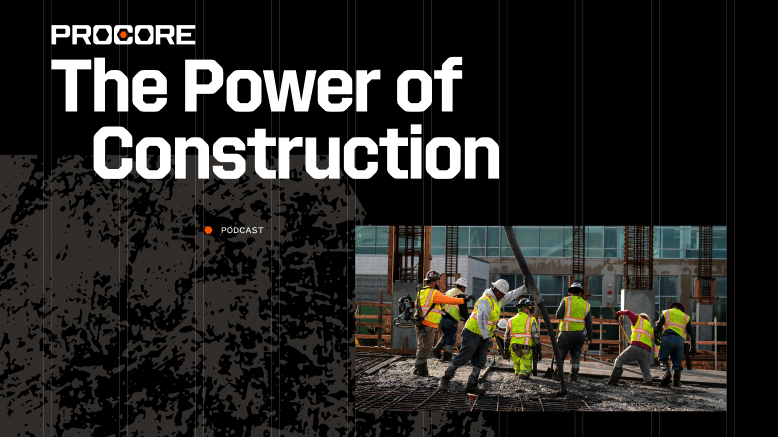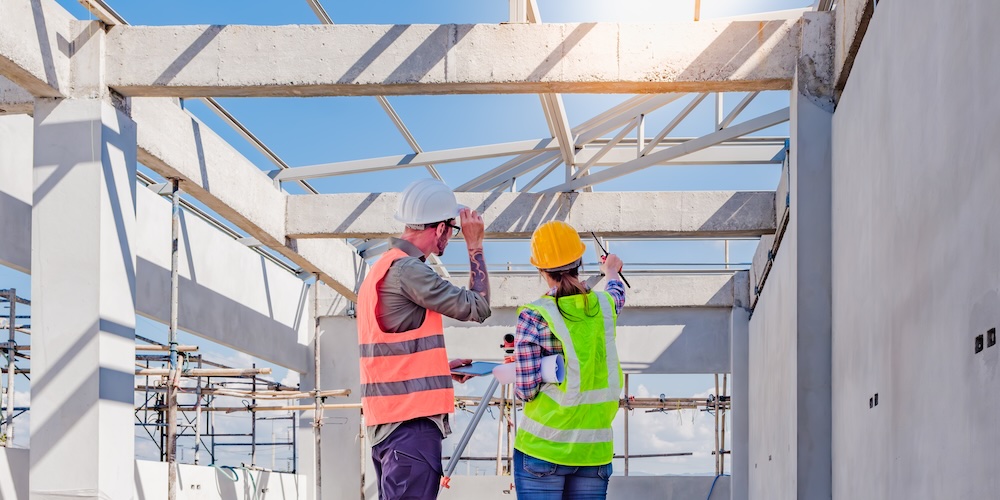— 6 min read
Preconstruction Meetings: Everything You Need to Know

Last Updated Mar 13, 2025

Duane Craig
Writer/Editor
In addition to his career as a construction project manager/superintendent, Duane has worked as a photojournalist, education director, and landscaper. For the past 14 years, Duane has covered the construction, finance, and tech industries.
Last Updated Mar 13, 2025

The preconstruction meeting serves as the foundation upon which a project is built. At this meeting, expectations are defined, roles are clarified, risks are identified and mitigated, and schedules and budgets are carefully reviewed. Furthermore, these meetings are essential for fostering collaboration and mutual understanding among all project stakeholders, ensuring clear communication channels and a cohesive vision for the project. Preconstruction meetings can come in many formats, because every party to a construction project uses them, both individually and collectively — and a project without a preconstruction meeting is a project poised to have difficulties.
Read on as we delve into the importance of preconstruction meetings, what goes into the meeting agenda, documents to be reviewed and questions to ask during the meeting, and what outcomes you should aim for to have the most productive preconstruction meetings possible.
Table of contents
Why are preconstruction meetings important?
By taking the time to hold a comprehensive preconstruction meeting, project managers can ensure that everyone starts the project with a clear understanding of what needs to be done, when it needs to be done — and what obstacles may need to be overcome. The seeds of project failures and project challenges get planted long before construction begins. Poorly scoped projects with unclear specifications and quality requirements won’t get any clearer once construction starts.
The missing information on subcontractor building plans will become rework if they aren’t resolved before the sub starts the work. Site conditions not discovered before groundbreak could become deep holes, filling up with money and delays.
To minimize cost overruns and delays, every party to a contract needs to have at least one preconstruction meeting before work begins. And the entire project needs at least one meeting with every single contract stakeholder taking part.
Setting the Preconstruction Meeting Agenda
A preconstruction meeting agenda helps people plan for the meeting. It also serves as a guide during the meeting, making it easier to keep the meeting on topic. Thanks to the preconstruction meeting agenda, people know what to expect at the meeting.
It’s typical to include introductions so everybody knows the key players.
Agendas also include:
- Plan reviews
- Site conditions and boundaries
- Utilities review
- On-site storage
- Contract reviews
- Safety reviews
- Schedule reviews
- Document handling
- Communications plan
To see examples of preconstruction meeting agenda templates, you can visit online public sources like transportation departments and government agencies. You can also find sources that supply templates.
Preconstruction Meeting Setup
Any preconstruction meeting checklist must include meeting specifics. You will need to set the date, time, and duration. People expect to clear space in their schedules, so the person or persons who will determine these details are usually at the executive level at the owner or contractor, or both. Once you know how many people you will host, you can set an appropriate location.
Visual aids are vital. You'll need to share project drawings and images like renderings and technical features with the entire group. You will need to show the construction schedule, too. It’s a good idea to include ways for participants to display images and information to the group. Having a whiteboard available helps participants make lists, note deadlines, and keep up with presentation key points.
Common preconstruction meeting questions
You can tell a lot about a project by the preconstruction meeting questions that come up. If you get many questions about little details, the project documentation may not be up to par. Or you might get very few questions at all. That could mean two things. Either the participants have it all figured out, or they are completely in the dark and don’t want to let anyone know.
Generally, you’ll get a wide range of questions on any topic on the preconstruction meeting agenda. People will often just want to confirm their thoughts on certain topics are correct.
You might also get many other questions about the project’s scope, the specifications, the schedule, safety requirements, and the processes to follow for all communications aspects. Questions are good. They provide the chance to make expectations clear and help everyone understand the project and their roles.
Build a Strong Foundation with our Preconstruction Course
With 20+ years of experience, Ben Ashburn teaches you how to streamline planning, bidding, and procurement for better outcomes.

Important Documents to Review During Precon Meetings
A thorough preconstruction meeting covers enough of the project aspects to make everyone informed. People might not know exactly how to get an RFI approved or when to process a submittal, but they should know how to get answers to all those questions.
When reviewing documents, start with the contract. This outlines the parties’ responsibilities and rights, and it provides all the methods needed to run the project smoothly.
Another document to review is the design. This might include renderings of the finished project so people have a visual reference of what they will build. A blueprint review is definitely in order with special emphasis on callouts. If the project uses building information modeling, then a model review can take the place of blueprints.
The schedule is also a document of top interest to most parties. By doing a thorough review and pointing out the likely trouble spots and the critical path, you can set the stage for people to be thinking about their roles and how to overcome schedule challenges.
Other important documents include the safety plan, the site plan, the quality plan, and the communications plan.
Outcomes to Aim for During a Preconstruction Meeting
Hopefully, everyone on the project will have a detailed understanding of the project and their roles before the preconstruction meeting, since they likely bid on the project.
But what they might not have is a good understanding of how their role fits with the other participants. Sure, a painter knows they will work behind the drywall crew. However, they probably won’t know if the drywall crew sees a bottleneck coming at day 43 that will lead to a four-hour delay. The preconstruction meeting is a way for all participants to see their roles in the big picture and to get a heads up about the problems that are bound to come up.
One piece of preconstruction meeting advice is to make your preconstruction meeting one that encourages conversation and discussion among participants without losing control of the meeting’s trajectory. Another piece of advice is to keep copious minutes with notes about who is expected to follow up with whom, and who has responsibilities for ironing out details that aren’t clear.
Overall, your outcome is for people to know how they fit into the project. They should know more about the project through the eyes of the other participants and understand their responsibilities and rights within the contract framework.
Preconstruction meetings set the framework for kicking off the construction phase. Making yours dynamic, informative, and participatory helps everybody hits the ground running in the right direction.
Was this article helpful?
Thank you for your submission.
98%
2%
You voted that this article was . Was this a mistake? If so, change your vote
Scroll less, learn more about construction.
Subscribe to The Blueprint, Procore’s construction newsletter, to get content from industry experts delivered straight to your inbox.
By clicking this button, you agree to our Privacy Notice and Terms of Service.
Thank you!
You’re signed up to receive The Blueprint newsletter from Procore. You can unsubscribe at any time.
Categories:
Written by

Duane Craig
Writer/Editor
In addition to his career as a construction project manager/superintendent, Duane has worked as a photojournalist, education director, and landscaper. For the past 14 years, Duane has covered the construction, finance, and tech industries.
View profileExplore more helpful resources

Why do most construction strategies fail (and how to fix them)?
In this episode of The Power of Construction, hosts Sasha Reed and Brett King sit down with Helen Gawor to challenge construction’s approach to strategy. Helen reveals why most strategies...

What Happens When Data Drives the Business?
Construction has long been seen as a low-margin industry. But what if the real problem isn’t the margins—it’s how decisions get made? In episode 17 of The Power of Construction,...

Preconstruction Partnerships: How Safety Pros Can Collaborate with Estimating & Proposal Teams
Construction leaders and safety professionals are developing a strong understanding of how safety programs positively impact project outcomes. When safety is woven into every aspect of operations from pre-construction to...

Types of Construction Specifications: Understanding the Difference
On a construction project, the specification book, often referred to as the “spec book,” typically contains detailed descriptions of the materials, products, systems and workmanship required. The design team —...
Free Tools
Calculators
Use our calculators to estimate the cost of construction materials for your next project.
Templates
Find a template to help you with your construction project tasks.
Material Price Tracker
Get the latest U.S. retail prices and view historical trends for common building materials.
Glossary
Explore key terms and phrases used in the industry.
